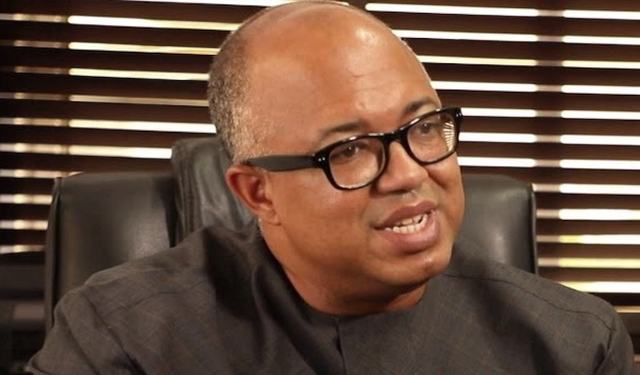A non-governmental organisation, Business Renaissance Group, has filed a case at the Federal High Court in Abuja asking it to restrain the minister of finance Mrs. Kemi Adeosun from implementing the new tariffs on alcoholic beverages and tobacco.
The new excise duty for aforementioned products earlier approved by President Muhammadu Buhari will takes effect from today, June 4, 2018.
It would be recalled that in March, the minister of finance, Mrs. Kemi Adeosun, had announced that the president had granted a grace period of 90 days to manufacturers of the products.
She said the new excise duty rates would spread over a three-year period from 2018 to 2020 in order to moderate the impact on prices of the products.
The minister said the upward review of the excise duty rates for alcoholic beverages and tobacco was to raise the government’s fiscal revenues.
She said that it would also reduce the health hazards associated with tobacco-related diseases and alcohol abuse.
Adeosun said the new duty rate on tobacco was a combination of the existing ad-valorem base rate and specific rate while the ad-valorem rate was replaced with a specific rate for alcoholic beverages.
She said that under the new rates for tobacco, in addition to the 20 per cent ad-valorem rate, each stick of cigarette will attract one naira specific rate per stick; that is N20 per pack of 20 sticks in 2018.
She said that in 2019, tobacco will attract two naira specific rate per stick or N40 per pack of 20 sticks.
The minister said that by 2020, tobacco would begin to attract N2.90 kobo specific rate per stick or N58 per pack of 20 sticks.
Adeosun explained that Nigeria’s cumulative specific excise duty rate for tobacco was 23.2 per cent of the price of the most sold brand.
This is as against 38.14 per cent in Algeria, 36.52 per cent in South Africa and 30 per cent in Gambia.
She said also that the new specific excise duty rate for alcoholic beverages cut across beer and stout, wines and spirits for the three years, 2018 to 2020.
Under the new regime, beer and stout will attract 0.30k per centilitre (Cl) in 2018 and 0.35k per Cl each in 2019 and 2020; wines, N1.25k per Cl in 2018 and N1.50k per Cl each in 2019 and 2020, while N1.50k per Cl was approved for spirits in 2018, N1.75k per Cl in 2019 and N2 per Cl in 2020.
“The Tariff Technical Committee (TCC) recommended the slight adjustment in the excise duty charges after cautious considerations of the Government’s Fiscal Policy Measures for 2018 and the reports of the World Bank and the International Monetary Fund Technical Assistance Mission on Nigeria’s Fiscal Policy.
“The effect of the excise duty rates adjustment on trade and investment was also assessed by the Federal Ministry of Trade and Investment and it adopted the recommendations of the TTC. Furthermore, peer country comparisons were also carried out showing Nigeria as being behind the curve in the review of excise duty rates on alcoholic beverages and tobacco,” she said.
But in the originating summons, Business Renaissance Group, which labeled the new tariffs as ‘Killer Taxes on alcohol and beverages’ asked the court to make an order compelling the minister and her agents while reviewing any tariffs, to take into consideration, the interest of the plaintiffs, the generality of the citizens and the clear intendments of the Constitution of the Federal Republic of Nigeria with regard to growing a robust and all inclusive economy for the good of all Nigerians as a fundamental obligation of government.
The suit filed t on behalf of the plaintiff by Christian Hon from the Law firm of J-K Gadzama (SAN) is coming after the expiration of a 30-day ultimatum given to the minister of finance to rescind the hike in tariffs on Alcoholic beverages and tobacco or face legal action.
The BRG also sought a declaration that the increment of the tariff duty on alcoholic beverages and tobacco is against public policy and not in tandem with the intention behind sections 16 and 42 of the Constitution of the Federal Republic of Nigeria, 1999 as amended.
It requested the court to make a declaration that the phenomenal increment of tariff duties on alcoholic beverages and tobacco is indefensibly and unjustifiably selective, discriminatory, unreasonable and unfairly oppressive of a particular segment of the Nigerian society and the Plaintiffs in particular, who use the affected products and whose means of livelihood are threatened by the new oppressive tariffs.
It also sought a declaration that a selective and arbitrary increase in commodity tariffs targeted only at a particular section of the economy players and users in the country and with the aim of shrinking that economic segment, amounts to economic and social emasculation of the citizens affected and is ipso facto against public interest and is therefore unconstitutional.
Besides, it sought a declaration that the propagation and enforcement of said discriminatory and oppressive tariffs is an act of executive bad faith, recklessness and is not a bona fide or positive exercise of governmental power and therefore runs contrary to the raison d’être of governance – as made clear in the constitution of the Federal Republic of Nigeria.
With NAN and Vanguard reports




























































